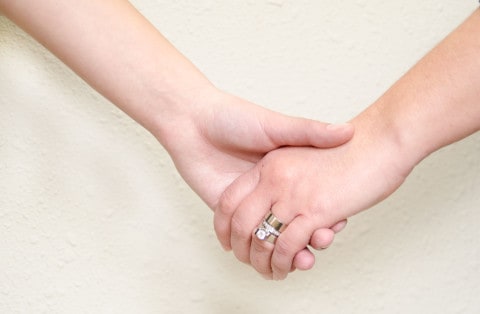KATRINA BURNS

The pro-life stance promotes solidarity for women through presenting concerns for both the woman and her unborn child.
The pro-life position is often perceived to be all about the fetus. While there may be some individuals within the pro-life movement who think that way, the vast majority of us — including those who sit at the Students for Life table in the Arts Tunnel — see a much bigger picture.
When I spoke with some of the volunteers at the pro-choice table — who were all lovely people — there was a lot that we agreed on. At the end of the conversation, one of them made the observation that I sounded very “pro-woman” — a comment I agree with.
A lot of individuals who stop to talk to us at our table inevitably ask the hard questions about the life of the mother, rape and poverty. They often leave satisfied that we are empathetic human beings who do in fact care about the woman, not just about her unborn child.
My heart breaks for women confronted with an unplanned or crisis pregnancy that they feel they cannot handle and it breaks all the more for women who are violated in the latter case through rape and sexual assault. These women have been the victims of a heinous crime and the offender deserves to be in prison. I can’t imagine being in their shoes and I have no doubt that when rape results in pregnancy it is accompanied by feelings of resentment and anger.
The pro-life approach aims to eliminate the crisis, not the child. Abortion does not undo the rape. Instead it adds another crisis for the woman to deal with. A woman in this situation needs our utmost compassion and support as she works through the trauma of the rape, her pregnancy and whichever option she chooses after the birth. As a club, we aim to support women by directing them to resources for the mother and the child.
Abortion is a procedure that can have a multitude of grave effects on the health and well-being of a woman. These effects are often shrugged off as a myth, but research suggests otherwise. No medical procedure is without risks and it would be absurd to suggest that something as invasive as an abortion would be the exception to that.
The deVeber Institute for Bioethics and Social Research offers a comprehensive look at the health implications related to abortion. Their book Women’s Health After Abortion, written by Elizabeth Ring-Cassidy and Ian Gentles, includes the possible after-effects of abortion. Some of these are an increased risk of suicide, psychiatric problems, breast cancer and pre-term births in subsequent pregnancies.
I would not wish any of these risks on any woman.
Women should, at the very least, be informed of these and other risks associated with abortion so as to make a fully informed choice, as they would for any other medical procedure.
I truly believe that carrying an infant to term — either to mother or to be mothered by another — is in the best interest of any woman. I further trust that it is in the best interest of the other human in question — the pre-born child.
The question of whether or not the mother’s life is in danger is inevitable. In these cases we must always remember that there are two lives we must work to save. There is a difference between prescribing an abortion when a mother’s health is at risk and prescribing treatment that may as a side-effect terminate the life of the fetus. Medical attention striving to save both lives, even when it fails to save the life of the child, is certainly not morally objectionable in the same way that open heart surgery resulting in a death on the operating table is not.
The pro-life position is naturally and fundamentally pro-child — the pre-born is human too. Just like the women who sit at the pro-choice table, I am pro-woman and support a woman’s right to choose.
I respect every human’s right to choose pertaining to any aspect of their life. However, an individual’s freedom to choose ends where it infringes upon the rights or property of another. The right to life is a fundamental human right and choosing abortion infringes upon that right of the pre-born child.
—
Photo: Katherine Fedoroff
Leave a Reply